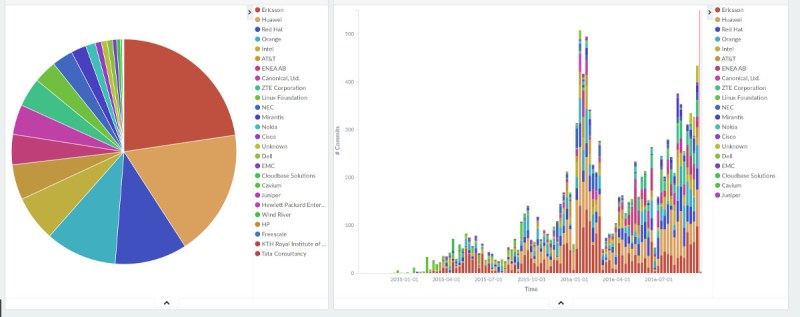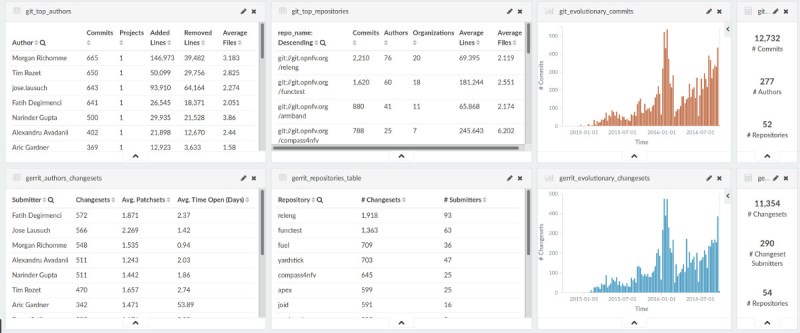Software development is eating up the labor market
More than 20 years after the crash of the 1990’s dot-com bubble, IT has transformed business. Today, the majority of businesses are software companies. Netflix is not a film company, Amazon is not an online ebook company, Spotify is not a music company, Pixar is far from being an animation studio, and Groupon is not just a marketplace. There are more than 330K active organizations in GitHub. We are living in the Digital Transformation buzzword era.

A lot of these companies are using Open Source technologies and they demand experts in many application fields (Cloud, Web Development, etc.). Open source’s talent has a strong pro demand. Managers are always looking for experienced developers. According to the 2016 Open Source Jobs Report:
- 87% of hiring managers say it is difficult to find open source talent and 79% have even increased incentives to retain their current open source professionals.
- 58% of hiring managers are looking for DevOps talent, making DevOps the most in-demand role in open source today.
- For jobs seekers, even though 86% of tech professionals say open source has advanced their careers, only 2% say money and perks are the best part of their job.
Having a solid strategy in attracting and retaining IT talent is crucial for the future of companies. How could Software Development Analytics help them?
Strategies to attract talent
Getting the right talent to do the right job is not an easy task. The use of bots to do research and to send messages are two practices not overly valued by developers.
GitHub, StackOverflow and LinkedIn are the most popular resources for tech recruiters nowadays. Despite them being great sources of information, recruiters don’t know how to use them and have a lot of difficulties capturing the developers attention.
One of the most common mistakes is to try to measure someone’s knowledge by using simple metrics like the number of contributions, lines of code, etc., that they have in projects, or their karma in StackOverflow.
Beyond GitHub and StackOverflow, there are many other tools like Bugzilla, Gerrit, Jira, etc., used by a lot of projects to manage their development and recruiters are losing out on its potential use for improving their talent search.
Moreover, developers stay updated by reading books and free online tutorials, training through online courses, engaging social and professional networks, participating in open meet-ups and attending conferences. This kind of activity describes what skills a developer has and what kind of technologies they are interested in.
When a software project manager or recruiter is looking for a developer, it’s not only about the technology they manage, it’s also about the the resilience, critical thought, and problem solving orientation.
Coders searching for coders
Bitergia Dashboards presents an up to date, high level, quantitative panoramic view of the ecosystem involved in project development, with the ability to drill into data and metrics what matter most for the user.
In terms of talent search and talent retention, Bitergia customizes the dashboard for recruiters and HR managers to provide specific metrics and queries.
Let’s say company ACME is using SDN technologies and it is looking for developers for its IT team, so, where could they look ? How?
Based on custom queries like:
- Who is still active in the project?
- Whose patchsets are merged faster? Who is not auto-reviewing him/herself?
- Whose commits are around average size for project’s commit size (LoC)?
- Who is answering questions in StackOverflow and also contributing actively to the project? Who is discussing in the tickets?
- Who is participating in meet-ups related with the projects and forking or starting to particpate in the project?
- etc.
Bitergia could build a custom dashboard for ACME, aggregating activity information from several projects like OpenStack, OPNFV, OpenDayLight, etc. with profiling metrics and data about people contributing and participating in these projects based on the aggregation of activity from all the data repositories that define those project’s ecosystems (git, gerrit, github, mailing lists, stackoverflow, jira, etc.).

If you are looking to hire developers and IT professionals, we can help you to get the right person for your project. We’ll sit down with you to understand your business, development workflow, define with you a complete profile, and build a perfect research recruitment tool to suit your needs. Just ask








